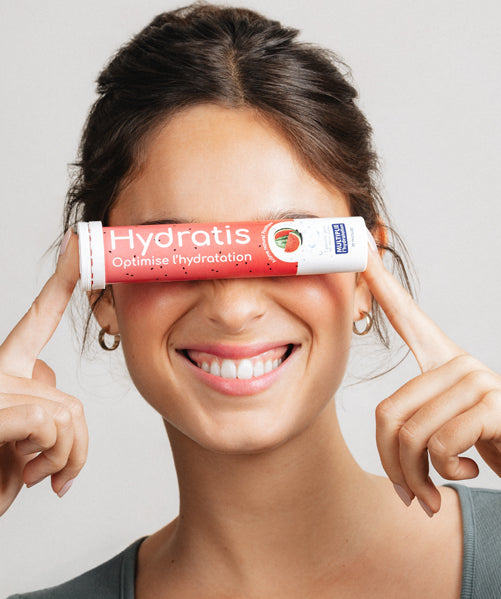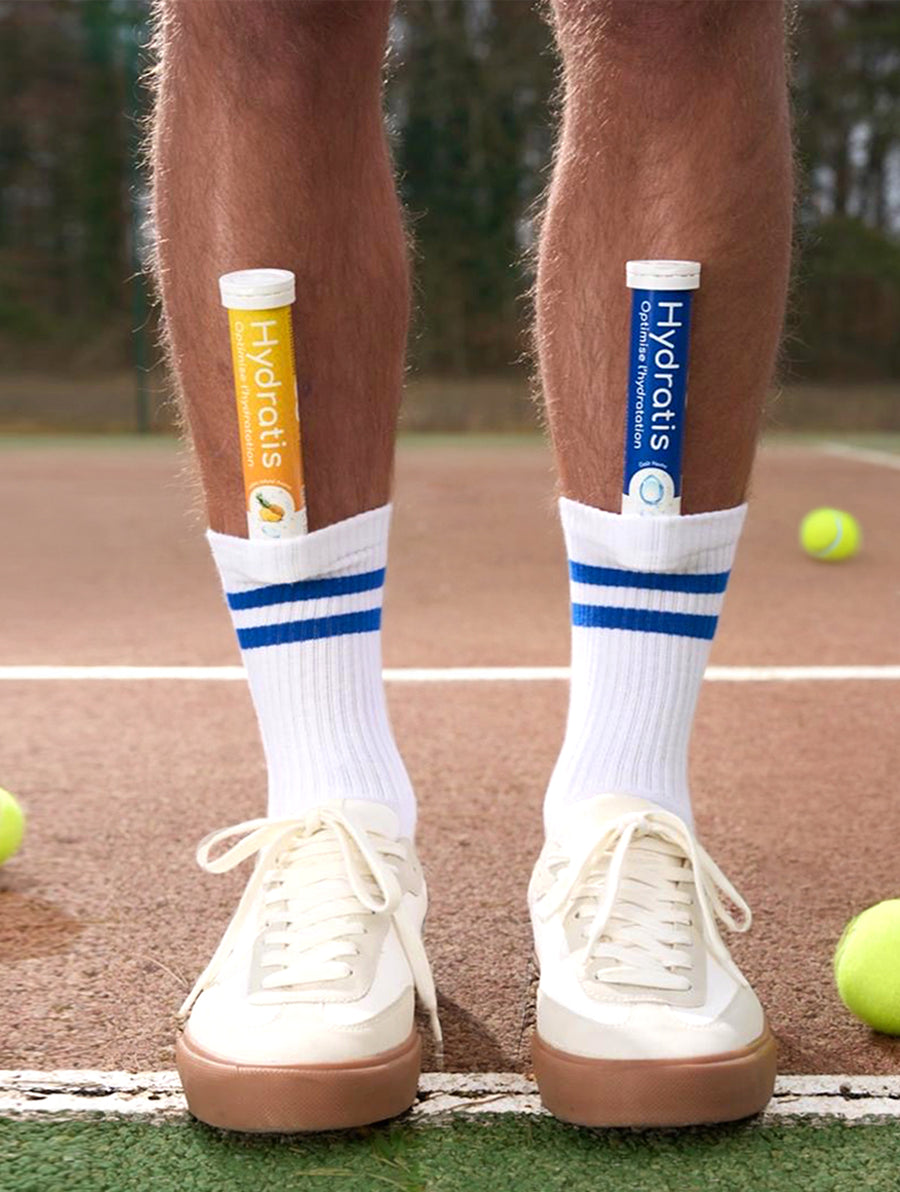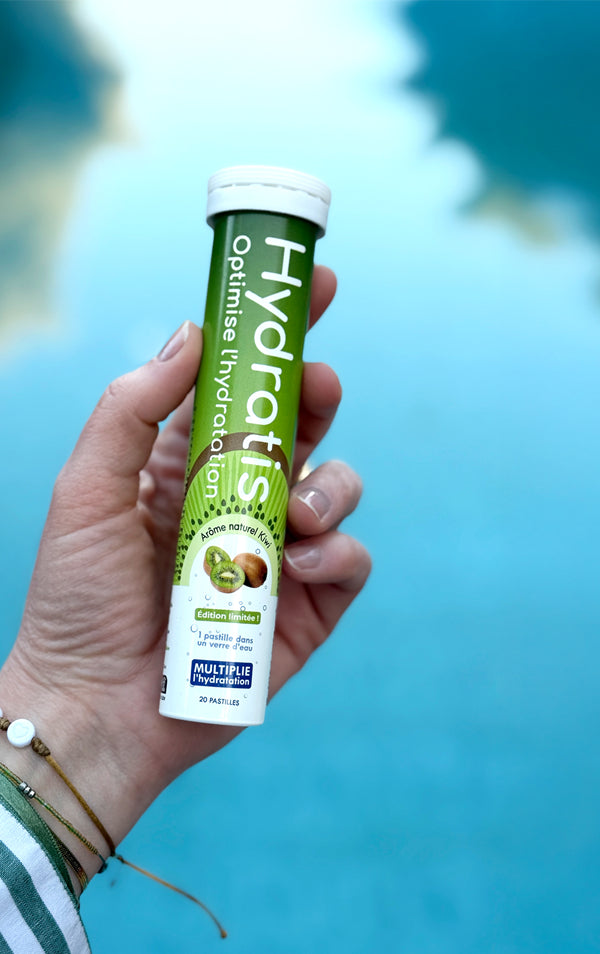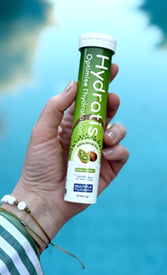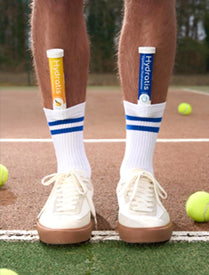Dehydrated skin is not only uncomfortable: it can also become the ideal breeding ground for breakouts . When skin lacks water , its skin barrier (hydrolipidic film) weakens and reacts by producing more sebum to protect itself.
This excess oil clogs pores, thus promoting blemishes on the face. Restoring optimal hydration through appropriate skincare helps to restore this balance and prevent the formation of pimples caused by a lack of moisture in the epidermis.
Dehydrated skin and breakouts: understanding the link
Before dehydrated skin can be effectively treated, it is essential to understand how this lack of water disrupts skin function.
Difference between dry skin and dehydrated skin
Many people confuse dry skin with dehydrated skin, when in fact they are two very different conditions. Dry skin lacks lipids , that is, sebum , which makes it rough and uncomfortable.
As for dehydrated skin, it primarily lacks water . In other words, the hydrolipidic film no longer retains moisture properly. It can therefore be both oily and dehydrated .
Why can dehydrated skin cause pimples?
When skin lacks water, it loses its ability to defend itself. And to compensate for this lack of water, the sebaceous glands produce more sebum.
This action leads to clogged pores , which in turn causes breakouts . This vicious cycle worsens if the protective film is weakened by unsuitable skincare products or overly harsh cleansers.
Recognizing dehydrated skin

While certain signs can help identify skin that is dehydrated , there are also factors that can worsen the lack of water and thus accentuate this imbalance.
The visible signs
Dehydration can affect all skin types and manifests itself through several visible indicators on the face :
- Tightness and a feeling of dryness;
- Dull complexion and lack of radiance;
- Fine lines accentuated by lack of water;
- Appearance of pimples ;
- Rough texture or feeling of discomfort, even after applying a treatment.
Aggravating factors
Certain behaviors or products can exacerbate dehydration . For example, excessive rubbing or the use of an overly aggressive cleanser will weaken the skin barrier.
Drug therapies or certain cosmetics containing irritating ingredients can also dry out the skin. Similarly, using an unsuitable or overly rich body cream can cause skin imbalances.
How to rehydrate your skin and reduce pimples?
To rehydrate it, it is essential to act on both the inside and outside of the skin.
Adopt a gentle and hydrating routine
Adopting a good routine is the first step towards balance. And to do this, it's necessary to choose a product with a light and nourishing formula that hydrates without clogging pores.
It is important to apply a good moisturizing cream regularly, morning and evening, to the entire face , to strengthen the epidermal protection and reduce feelings of dryness.
Actions to avoid
To protect your skin and limit the appearance of pimples, certain habits should be avoided. These include:
- Washing your face too frequently or with harsh products;
- Exfoliating excessively;
- Using skincare products that are unsuitable for your skin type;
- Rubbing your face or applying too many products at the same time;
- Neglecting to rinse or leaving product residue on the skin.
Natural solutions and nutrition
To hydrate the skin and reduce breakouts, it's essential to act from within. Drinking enough water throughout the day helps nourish cells and maintain the body 's balance .
Fruits and vegetables rich in water and vitamins , such as cucumber, watermelon, citrus fruits or tomato, will provide additional hydration.
Foods rich in omega-3 (salmon, mackerel, chia seeds, walnuts, etc.) and antioxidants (blueberries, raspberries, blackberries, spinach, broccoli, etc.) strengthen the skin.
Solutions such as natural masks made with aloe vera, honey or avocado are also highly effective.
Prevent dehydration and maintain balanced skin
Whether you have dry, combination or oily skin, the following tips will help you maintain and prevent dehydration.
1. Adopt a skincare routine adapted to the seasons
Skin needs change with the seasons. In winter, dry skin does indeed need extra nutrients. So opt for... Nourishing oils to limit dehydration and protect the skin barrier.
And in summer, you can use a hydrating serum to protect your skin from sun-induced irritation.
2. Maintain good internal hydration with Hydratis

To complement external intake, it's important to support hydration from within . Hydratis is a solution you can absolutely use. It contains electrolytes and trace elements and is specially designed to improve the body 's absorption of water .
This complete formula helps maintain fluid balance , support metabolism and improve overall comfort.
It is easy to use in any situation ( sport , heat , travel , fatigue) and suitable from 3 years old.
Our Hydratis lozenges also help to limit skin dryness , preserve skin radiance, while reducing cramps and aches after exercise.
Adopting a skin-friendly lifestyle
A healthy lifestyle enhances the effects of skincare and internal hydration. Getting enough sleep, reducing stress, and engaging in regular physical activity will contribute to skin balance.
Furthermore, a balanced diet , rich in water and nutrients, combined with a gentle routine, helps to prevent imperfections and maintain comfortable, healthy and radiant skin throughout the year.
FAQ: Dehydrated skin and pimples
How can I tell if I have dehydrated skin and not dry skin?
Dehydrated skin may show tightness, a dull complexion or imperfections, while dry skin lacks lipids and has a rougher appearance.
Is drinking more water enough to reduce my pimples?
Drinking more water is helpful, but it is also necessary to adopt a gentle, hydrating routine to limit the appearance of pimples.
What skincare products should I prioritize if my skin is dehydrated and has acne?
Opt for a hydrating serum or non-irritating creams that moisturize without clogging pores. Avoid harsh or stripping products.
Is it possible to have oily and dehydrated skin at the same time?
Yes. Oily skin can lack water, which leads to an overproduction of sebum and promotes blemishes.
How long does it take to rebalance dehydrated skin?
Depending on the severity of the skin imbalance and the regularity of care, a few weeks are enough to regain normal skin.
Conclusion
Dehydrated skin can promote breakouts. However, it's possible to restore its balance with a suitable routine, regular hydration, and gentle daily skincare practices.
By combining appropriate care, a healthy diet and lifestyle, your skin will regain comfort, radiance and vitality.
Bibliography
Dehydrated skin: effective treatments and expert advice . (n.d.). Celestetic Cosmeceuticals. https://celestetic.fr/fr/expert/traitement-secheresse/
Verdier - Sévrain, S., & Bonté, F. (2007). Skin hydration: a review on its molecular mechanisms. Journal Of Cosmetic Dermatology , 6 (2), 75-82. https://doi.org/10.1111/j.1473-2165.2007.00300.x
Rodrigues, L., Palma, L., Marques, LT, & Varela, JB (2015). Dietary water affects human skin hydration and biomechanics. Clinical Cosmetic And Investigational Dermatology , 413. https://doi.org/10.2147/ccid.s86822
Taylor, K., & Tripathi, AK (2025, March 5). Adult dehydration. StatPearls - NCBI Bookshelf. https://www.ncbi.nlm.nih.gov/books/NBK555956/
